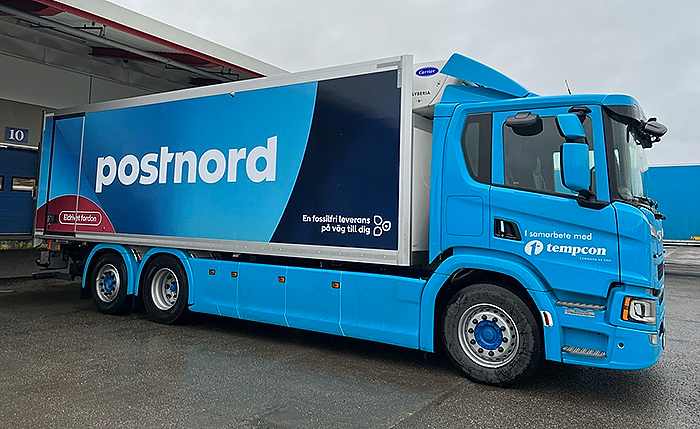Within a number of industries, work is now underway to build an electrified and sustainable society. Not least, an electrification of the transport sector is necessary for the green transition to succeed. That is why Tempcon’s subsidiary Tommy Nordbergh Åkeri participates in the E-charge project to contribute to that development, but if electrification is to become possible, more obstacles must be overcome on the way.
In order for the global climate goals to be reached, a broad transition from fossil energy to a future powered by green energy is needed. The search for reduced emissions through electrification is in full swing in many sectors and an important role is played by the transport sector, as it currently accounts for large emissions. In Sweden, this is about a third of the country’s total emissions of greenhouse gases, according to the Swedish Environmental Protection Agency.
If the transport industry was fully electrified using green energy, a significant part of global emissions could disappear. Therefore, it is both important and urgent that the fossil fuel-powered trucks that now roll on our roads are replaced with electric ones, explains Fredrik Allard who is head of E-Mobility at Scania.
– The electrification will also benefit the local environment with less noise and exhaust gases. At the same time, the drivers’ working environment will improve thanks to quieter vehicles, which will make the profession more attractive. There is much to be gained from this transformation happening as soon as possible.
Scania, like many other vehicle manufacturers, today spends a large part of its research and development budget on electric trucks, despite the fact that they only account for about 1 percent of sales.
– We want to be a leader in the shift to a sustainable transport system, continues Fredrik Allard. Therefore, we also help authorities to understand how the transport system will look in the future. We currently have 600 000 connected vehicles, which means that we have a good overview of everything from how much energy is used to where it is suitable to charge.
Scania, through its parent company Traton, together with its colleagues Volvo and Mercedes not only supplies its customers with trucks, but also sells charging stations through a jointly owned joint venture that initially invested 500 million euros in public charging.
– The aim is to build 1 700 charging points in Europe that will be operational in 2027, says Fredrik Allard. That number is not enough but will make up about ten percent of the total network. It is important that the network is expanded before and in parallel with the electric trucks starting to enter the market.
In order for the electrification of the automotive industry to become possible, the authorities need to continue to provide support and grants to those who choose electric transport solutions, says Fredrik Allard. At the same time, a rapid expansion of the electricity network and electricity production is needed.
– Today there is a lack of capacity to carry out the conversion to electric trucks, continues Fredrik Allard. But Sweden has a good starting point. We have good opportunities to continue developing energy that is free of carbon dioxide emissions, which is both needed for the propulsion of electric vehicles and the manufacture of batteries. But even if we have good access today, many industries are facing electrification. If we want to maintain the dense position, it is therefore important to expand both the electricity grid and the capacity for green electricity production now.
